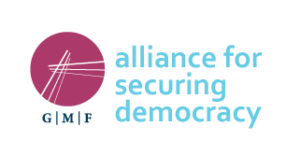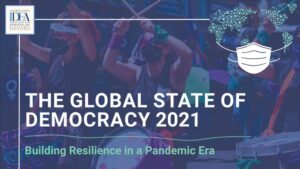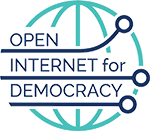 President Joe Biden’s administration is setting up a “global defamation defense fund” for journalists as part of his democracy promotion agenda, said Samantha Power, the US Agency for International Development administrator.
President Joe Biden’s administration is setting up a “global defamation defense fund” for journalists as part of his democracy promotion agenda, said Samantha Power, the US Agency for International Development administrator.
“We will offer the coverage to survive defamation claims or deter autocrats and oligarchs from trying to sue them out of business in the first place,” she said at Georgetown University’s School of Foreign Service. Power also promised to increase sharply how much American aid is channeled to local groups, vowing to make such assistance more inclusive and effective, AFP adds.
The details of governments invited to the administration’s much-touted Summit for Democracy has not been made public, although POLITICO managed to obtain a list of invitees Thursday, POLITICO’s Nahal Toosi reports:
In brainstorming ideas for the summit, administration officials came up with an “Illustrative Menu of Options” for commitments the U.S. could seek from the various countries invited to the gathering. That document includes an array of potential commitments that fall under the three main themes of the summit: fighting corruption, defending against authoritarianism and advancing human rights.
 It appears the responsibility for drafting such pledges lies with the governments, notes Laura Thornton, director and senior fellow at the German Marshall Fund’s Alliance for Securing Democracy. While these commitments will eventually be made public to allow for scrutiny and oversight, their development has not been inclusive. Commitments should be co-created with political opposition, civil society, media, and other stakeholders.
It appears the responsibility for drafting such pledges lies with the governments, notes Laura Thornton, director and senior fellow at the German Marshall Fund’s Alliance for Securing Democracy. While these commitments will eventually be made public to allow for scrutiny and oversight, their development has not been inclusive. Commitments should be co-created with political opposition, civil society, media, and other stakeholders.
In a memo seen by POLITICO, civil society groups urge the administration to “stress to participating governments the importance of consulting civil society and other stakeholders on their commitments in ways that are inclusive and timely.” It also urges the administration to “publish the list of invited countries so that civil society partners in those countries are better aware of the opportunities they have.”
“It is a shame that this initial event in December is not more inclusive,” said Sarah Repucci, a top official with Freedom House.
 Recent reporting shows summit invitations going to countries with questionable democratic credentials, such as the Philippines, Poland, and Mexico, GMF’s Thornton adds. While this “big tent” approach is likely aimed at encouraging these slipping countries back on track, organizers must guard against actually undermining the very goal of the summit by fueling and legitimizing leaders who are chipping away at democracy. This will require moving away from a state-based event of governments to a more inclusive one of democrats.
Recent reporting shows summit invitations going to countries with questionable democratic credentials, such as the Philippines, Poland, and Mexico, GMF’s Thornton adds. While this “big tent” approach is likely aimed at encouraging these slipping countries back on track, organizers must guard against actually undermining the very goal of the summit by fueling and legitimizing leaders who are chipping away at democracy. This will require moving away from a state-based event of governments to a more inclusive one of democrats.
“The symbolism of the gathering is important, but the actual change on the ground that the summit would generate remains to be seen,” said Steven Feldstein, a senior fellow with the Carnegie Endowment for International Peace. “There are a lot of big questions on the table that the initial gathering won’t address, like what to do about weaker democracies that are showing regression.”
 The summit is expected to launch a new international “Alliance for the Future of the Internet” to promote online freedom. The discussion document that lays out the tech alliance proposal argues that such a democratic-led alliance would to counter the rise of “an alternative vision of the Internet as a tool of state control promoted by authoritarian powers such as China and Russia,” POLITICO adds.
The summit is expected to launch a new international “Alliance for the Future of the Internet” to promote online freedom. The discussion document that lays out the tech alliance proposal argues that such a democratic-led alliance would to counter the rise of “an alternative vision of the Internet as a tool of state control promoted by authoritarian powers such as China and Russia,” POLITICO adds.







